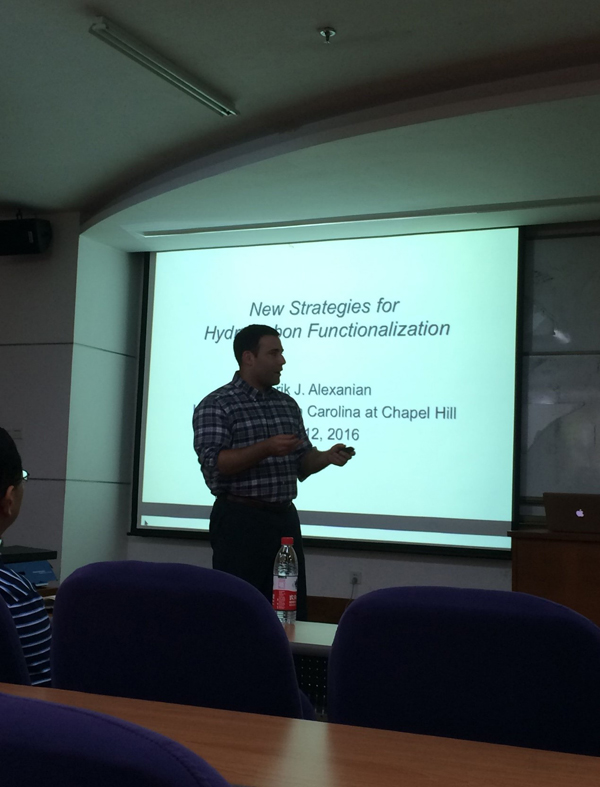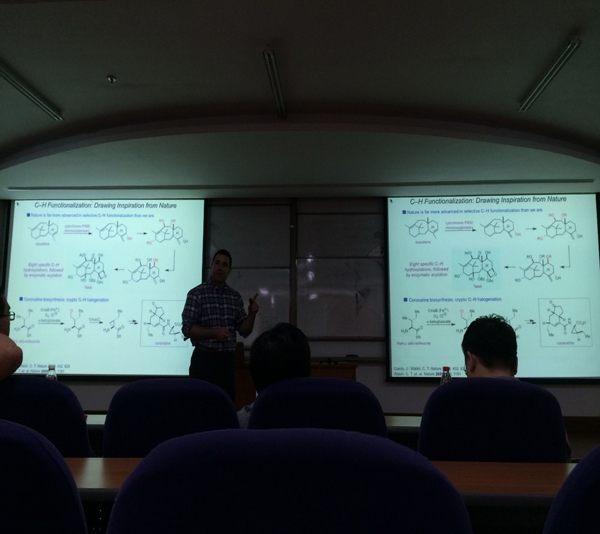Author:scbb
Time:2016-07-12 17:13:05
Hits:
On July 12, 2016, with the invitation of Prof. Huang Yong, Prof. Erik Alexanian visited our school and gave a wonderful lecture titled “New Strategies for Hydrocarbon Functionalization”, teachers and students of our school actively participated in the academic discussions and exchanged ideas.

The seminar can be divided into two parts. Professor Erik began by describing their group’s development of a platform for intermolecular aliphatic C-H functionalization using heteroatom-centered radicals. Their approach offerred a range of pracitcal and predictable aliphatic C-H transformations for complex synthesis and late-stage functionalization. In the second part of the seminar,he described their efforts towards developing new modes of organometallic catalysis involving unactivated alkyl halides in reactions with alkenes and other widely available chemial feedstocks. This work comprised a diverse set of catalytic processes for the formation of C-C bonds applicable to broad classes of small molecules. (Written by Zhen Wang )

Brief introduction of the professor:
Erik received his A. B. degree from Harvard University in 2001. During his undergraduate education, he performed research with Prof. Amir Hoveyda at Boston College focusing on enantioselective alkene metathesis. Erik continued his studies at The Scripps Research Institute in the laboratory of Prof. Erik Sorensen, moving to Princeton University before receiving his Ph. D. degree in 2006. His doctoral training involved the total synthesis of the furanosteroid viridin and the development of a palladium-catalyzed alkene aminoacetoxylation. Erik’s postdoctoral work with Prof. John Hartwig at the University of Illinois centered on synthetic and mechanistic studies of transition metal enolates. Erik enthusiastically joined the Chemistry Department faculty at UNC Chapel Hill in 2008 and was promoted to Associate Professor in 2014. His research program involves synthetic organic chemistry and organometallic catalysis. The Alexanian group currently focuses on the development of catalytic approaches to C–C bond construction using alkyl electrophiles and new manifolds for intermolecular aliphatic C–H functionaliza